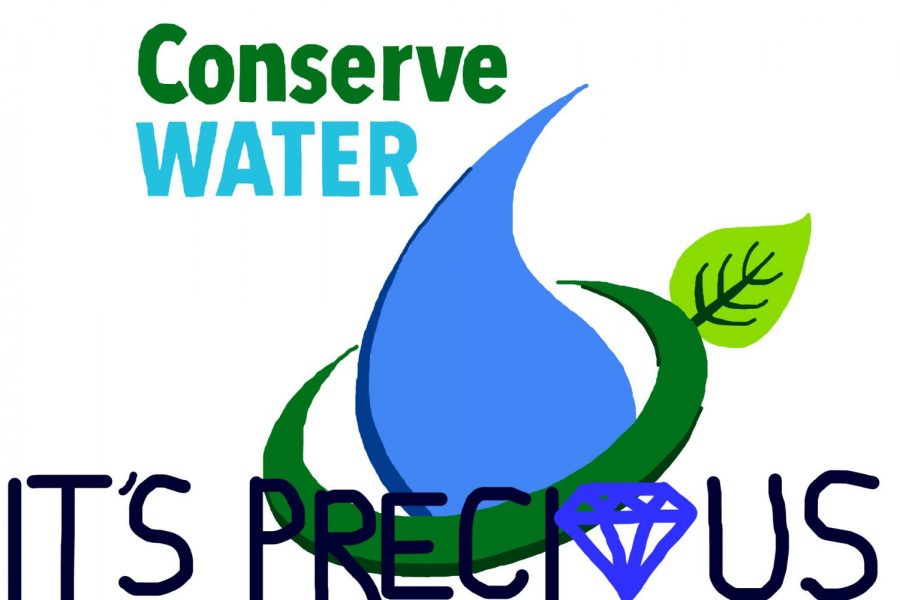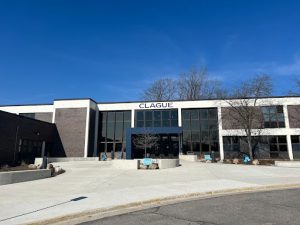Conserving water
All living things need water to survive and lack of water can cause diseases and natural disasters.
April 28, 2021
Water. It’s everything. It’s in everything and it’s all around us. Humans use water in basically everything they eat and in many things we do. Every living being needs water. Some organisms don’t have water, so people have helped conserve water as a solution. I think we should continue to conserve water. All living things need water to survive, not all water gets distributed evenly and lack of water can cause diseases and natural disasters.
According to pubmed.gov and Usgs.gov., “Animals’ bodies are 73.2 percent water and human bodies are 60 percent, they need that much water in their body to survive.” Without that much water in their body, they can’t survive and would die soon. For humans water is so important, it’s more important than food. We can live without food if we still have water, and according to MedicalNewsToday, humans can’t go without water for 3 days. For humans water is so important, it’s more important than food. We can live without food if we still have water, and according to MedicalNewsToday, humans can’t go without water for 3 days.
Even plants need water. Whether it is clean or not, it’s how they create their food and energy. Plants need water to survive, and we need those plants to survive because of the food they become our food. Not only do they become our food, it gives us something else that we need to survive: oxygen. Oxygen is another important part of life. When there are droughts in certain areas, we can transport clean water for the people who live there and for their plants we can transport water, whether it is clean or dirty because both work for plants.
Some people say that water is a renewable resource, which is true. A renewable resource is something that can be used and won’t run out because it gets naturally replaced. All of that is true, but there is one problem. Water isn’t evenly distributed around the world. Rain does fall to keep the same amount of water on Earth, but not all places get rain. Like deserts, places in the US such as California, Arizona, Nevada, Utah, New Mexico, Texas, Colorado, Wyoming, Idaho, Oregon, Montana and Washington, they don’t get that much water. If we conserve water, all the living organisms in that area can get the water they need. Don’t waste water just because you have it and it is available to you, because there are others around you who don’t have the access you do. One way you can help save water is by, not starting half full laundry loads or half full dishwashers.
Some natural disasters are caused by lack of water. Heat waves and droughts occur because there isn’t enough water in that area. Thousands of organisms die because there is a lack of water. “Droughts happen when it hasn’t rained in weeks, months and sometimes years” shares National Geographic. Heat waves are caused when there is a long period of time with extremely hot weather, says energy education. We can help those places by conserving water. Not only does lack of water cause natural disasters, but it also causes diseases. “Diarrhea, cholera and typhoid fever is common among young children because of lack of water,” reports CDC. It’s important that people who have more than enough water to help those who don’t.
Instead of using sprinklers to water your grass, you should just wait for it to rain — if you live in a place where it rains pretty often. Don’t keep the tap on for a long time, take shorter showers and don’t waste the water you are given to drink because that is water that could mean the difference of life or death to someone else. Water may seem like a simple resource to some organisms, but to others it’s like gold. Water conservation helps humans, plants and animals. All living beings need them, not all water gets evenly distributed, and it can cause natural disasters and diseases. Wystan Hugh Auden, an American poet, agrees and has something to say.
“Thousands have lived without love, not one without water.”







